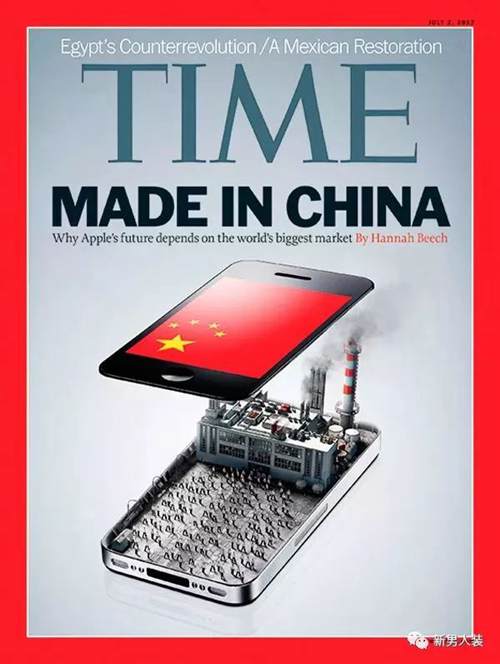


Products tagged with “made in China” have become an inseparable part of the world as China is gradually taking the globe with its incredible manufacturing industry.
Though Chinese products have already got rid of the image of low quality, there are still many foreigners, and even Chinese, who consider them a byword for cheap, low-end, and copycat commodities.
However, a recent Japanese TV show which conducted a survey on Chinese products has astonished those who looked down upon Chinese manufacturing.
At first, the respondents all expressed a demeaning attitude toward Chinese products, saying they’d never buy them. But obviously, the labels on their clothes which say “made in China” are indeed a slap in the face.
The TV show later did a test: Clear all the China-made products from a Japanese household. Four hours later, 619 pieces of Chinese products were removed, and even the clothes of the house owner had to be taken off.
As a matter of fact, Japanese not only need Chinese products when they are alive, but also after their death – over 90% of the coffins sold in Japan are made in China.
The US writer Sara Bongiorn who published a book titled “Without MADE IN CHINA” a decade ago also conducted a similar experiment in a bid to measure the impact of globalization on ordinary Americans.
She decided not to buy any products made in China for a year. At first, she was pretty positive about her decision, believing she could find substitutes from other countries. But she later proved herself wrong.
Rejecting cost-effective Chinese products, Bongiorn could only choose Italian-made sneakers for her children at the price of $68 per pair, and the Chinese counterparts were only $10.
Once she tried to buy a candle for her husband’s birthday, but failed to find one that was not made in China at six grocery stores.
At last, Bongiorn concluded in her book that “made in China” products are inseparable to American society, since the inconveniences of living without them are a huge cost.
US President Donald Trump has won lots of support for his slogan “Make America Great Again” and for his “Buy American, Hire American” rhetoric during his campaign. However, the hats, clothes, and flags printed with the slogans that were used for the campaign were all made in China.
Today, with the arising awareness of brands and improving demand for quality, “made in China” has gradually shaken off the label of cheap, copycat products, and is winning a reputation for competence.
 Fire brigade in Shanghai holds group wedding
Fire brigade in Shanghai holds group wedding Tourists enjoy ice sculptures in Datan Town, north China
Tourists enjoy ice sculptures in Datan Town, north China Sunset scenery of Dayan Pagoda in Xi'an
Sunset scenery of Dayan Pagoda in Xi'an Tourists have fun at scenic spot in Nanlong Town, NW China
Tourists have fun at scenic spot in Nanlong Town, NW China Harbin attracts tourists by making best use of ice in winter
Harbin attracts tourists by making best use of ice in winter In pics: FIS Alpine Ski Women's World Cup Slalom
In pics: FIS Alpine Ski Women's World Cup Slalom Black-necked cranes rest at reservoir in Lhunzhub County, Lhasa
Black-necked cranes rest at reservoir in Lhunzhub County, Lhasa China's FAST telescope will be available to foreign scientists in April
China's FAST telescope will be available to foreign scientists in April "She power" plays indispensable role in poverty alleviation
"She power" plays indispensable role in poverty alleviation Top 10 world news events of People's Daily in 2020
Top 10 world news events of People's Daily in 2020 Top 10 China news events of People's Daily in 2020
Top 10 China news events of People's Daily in 2020 Top 10 media buzzwords of 2020
Top 10 media buzzwords of 2020 Year-ender:10 major tourism stories of 2020
Year-ender:10 major tourism stories of 2020 No interference in Venezuelan issues
No interference in Venezuelan issues
 Biz prepares for trade spat
Biz prepares for trade spat
 Broadcasting Continent
Broadcasting Continent Australia wins Chinese CEOs as US loses
Australia wins Chinese CEOs as US loses